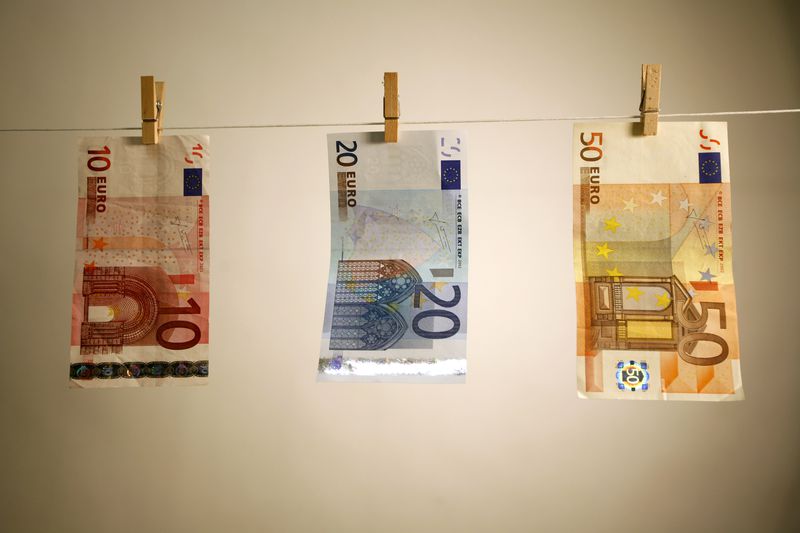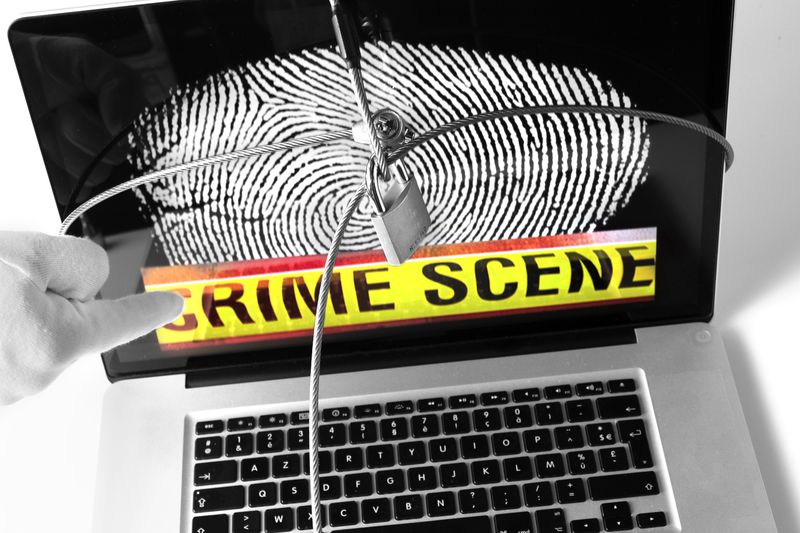Contemporary Crime Requires Contemporary Solutions. Will We Have Them?
Zhaneta Kuyumdzhieva, April 16, 2013
 The next meeting of the committee on organised crime, corruption and money laundering (LIBE) in the European Parliament, scheduled for April 23rd in Brussels, is expected to be very busy. On the agenda is discussing the 744 proposals for amendments to the interim report for tackling organised crime which was proposed for a European Parliament resolution in February. The document focuses on two directions. First, on vicious practises and second, it touches some of the most painful issues in the Bulgarian reality. Not that the home grown criminal methods are the inspiration of the text, but the situation very much resembles the good saying "When I'm talking to you, daughter, I'm thinking about you, daughter-in-law".
The next meeting of the committee on organised crime, corruption and money laundering (LIBE) in the European Parliament, scheduled for April 23rd in Brussels, is expected to be very busy. On the agenda is discussing the 744 proposals for amendments to the interim report for tackling organised crime which was proposed for a European Parliament resolution in February. The document focuses on two directions. First, on vicious practises and second, it touches some of the most painful issues in the Bulgarian reality. Not that the home grown criminal methods are the inspiration of the text, but the situation very much resembles the good saying "When I'm talking to you, daughter, I'm thinking about you, daughter-in-law".
Some of the most targeted proposals are:
The committee "considers that, in addition to marring the effectiveness of administrative action, a disorganised bureaucracy far removed from citizens, complex procedures and the numerous prior authorisations, and the delays and inefficiency brought about by bureaucrats for their own personal gain undermine the transparency of decision-making, frustrate the people concerned, and thus provide a fertile breeding ground for corruption". We, the Bulgarians, consider that too. And we are thinking exactly this when an application of ours is awaiting a permission on someone's desk for months.
The committee "recommends that stronger systems be put in place to bring transparency to, and eliminate bureaucracy from, government departments (starting with the very sensitive area of public procurement)". In our country, the phrase "public procurement" is a synonym of corruption and this is one of the reasons why the Commission has on a number of occasions brought the issue of this legislation up in its annual reports under the Control and Verification Mechanism (CVM).
"Believes that agents provocateurs should be employed so as to enable official corruption to be uncovered more effectively". Given our sensibility (often expressed in psycho-somatic symptoms) with the word "agent", hardly the vox populi will speak against such a proposal.
Even more sensitive for the Bulgarians sound the recommendations in the part "Towards More Responsible Politics". Part of them we lately heard from various political parties which in a populistic way remind each other about their responsibility "for drawing up election lists at all levels and have to gauge the calibre of candidates, not least by requiring them to comply with strict codes of ethics". In another proposal in the report, we can recognise the speech of civil associations, according to whom it is necessary to establish such schemes "of ineligibility be introduced for those convicted of corruption and that this penalty should apply for at least five years in order to cover all types of election". The committee also "recommends that the same period of disqualification should apply to government posts at every level". In Bulgaria, immediately we have a problem with the "final conviction" because we can hardly remember any such final sentences. Rather, people hope for some more abstract concepts like morals or a basic respect for public interest - at least due to some kind of a shame.
The parliamentary committee also believes that transparency in the political parties' reports should be increased and "denounces misuse and squandering". Although no one can define what squandering of party funds means, what is behind the so called representation costs could provide some hints.
Maybe the nicest appeal of the committee is "the Member States to adopt specific rules on vote buying, stipulating in particular that the benefit given for a promise to vote can take the form not only of money, but also of other advantages, including intangible advantages and those accorded to third parties not directly implicated in the illicit agreement". Here, again, we have something to give to the world. In Bulgaria, for a long time we have known that advantages can take the form of grilled rissole.
Apart from the overall kind-of-exposing tone of the report and the feeling of a hardening of the hint, it has a solid economic ground. According to data the committee quotes, illegal traffic of cigarettes, for instance, leads to losses of uncollected taxes amounting to 11 billion euros per year. According to Commission estimates, the price of corruption only in the EU is around 120 billion euros annually or 1% of EU GDP. Again is pointed out that crime hampers growth because crime organisations have entered deeply in some business and public areas thus hindering investments and entrepreneurship.
 Mafia has left a long time ago the traditional ways. On the one hand, modern technologies increase significantly the possibilities for trans-border crime, but additionally in the banking sector it is necessary information tools to be introduced to follow financial flows and detect violations. In this regard, the committee recommends an obligation to be introduced for a customer due diligence check by insurance and financial institutions to secure information about the real owners. Also recommended are initiatives, aimed at boosting data exchange and interconnectedness between trade registers in various member states.
Mafia has left a long time ago the traditional ways. On the one hand, modern technologies increase significantly the possibilities for trans-border crime, but additionally in the banking sector it is necessary information tools to be introduced to follow financial flows and detect violations. In this regard, the committee recommends an obligation to be introduced for a customer due diligence check by insurance and financial institutions to secure information about the real owners. Also recommended are initiatives, aimed at boosting data exchange and interconnectedness between trade registers in various member states.
The established lately practise mafias to take advantage of the grey area of agreements with other subjects (entrepreneurs, local governors, politicians, etc) who, although they do not have a link with the structure of crime organisations, get involved in lucrative for the two sides business relations, which is another often used method of the organised crime. This new face of organised crime requires a new and more adequate political commitment.
The committee recommends better coordination between all competent bodies, establishment of a single approach to the problem, work at all levels, etc. There is also a call for the creation of a European prosecution - a body about which there is a debate ever since the signing of the Lisbon Treaty. This could be the measure through which the EU will demonstrate how serious it is in its commitment to tackle crimes against its financial interests. At this stage, however, given the lack of clarity about the role and structure of such a prosecution, it is not clear how the idea will unfold.
The special temporary committee for the fight against corruption and organised crime has been established a year ago with the aim to study and analyse crime activities in the EU and also to propose a comprehensive and structured plan to tackle them at EU level. The term of the committee is one year, but was extended by 6 months. The interim report of Salvatore Lacolino (EPP, Italy) was presented in March. It is expected the report to be discussed at first reading in the plenary during the June session of the European Parliament.
 Federica Mogherini | © Council of the EU
Federica Mogherini | © Council of the EU | © Council of the EU
| © Council of the EU Luis De Guindos | © Council of the EU
Luis De Guindos | © Council of the EU